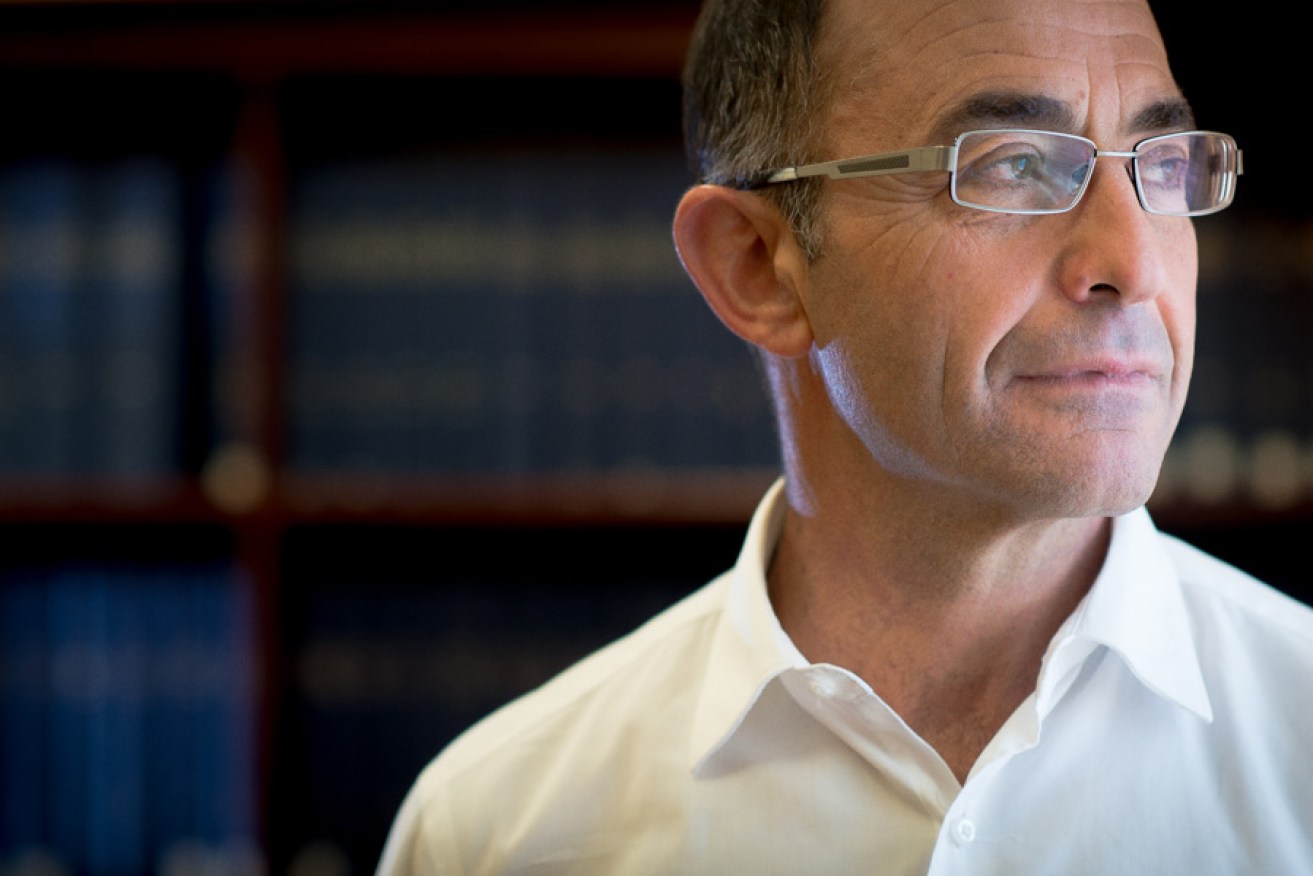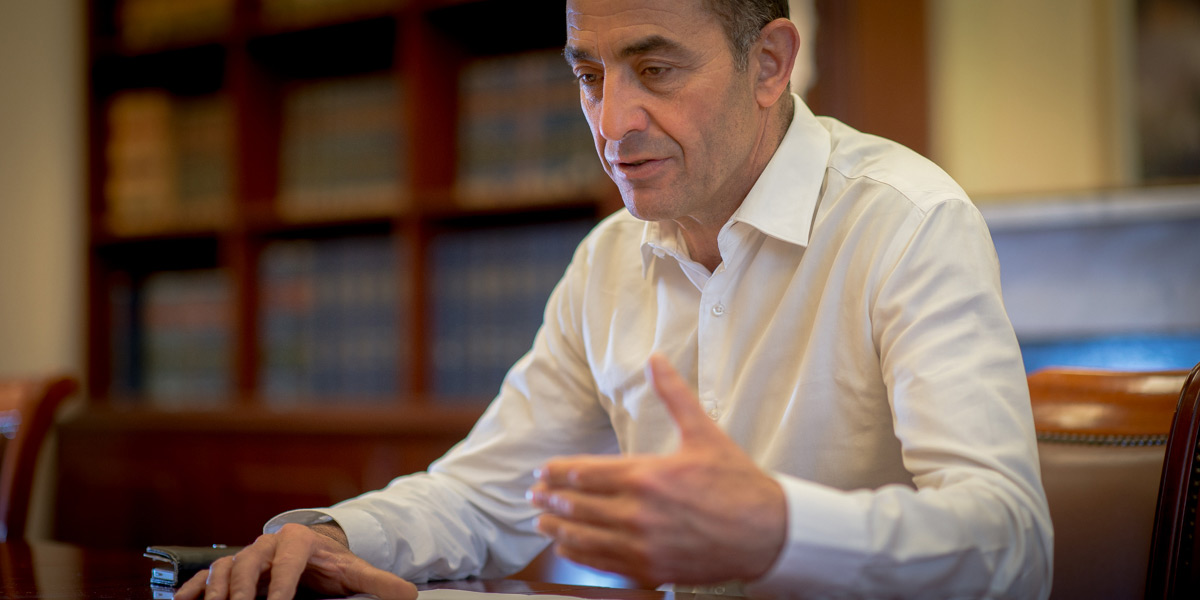Appeals hysteria could dent confidence: Chief Justice

Chief Justice of the Supreme Court Chris Kourakis. Photo: Nat Rogers/InDaily
The state’s Chief Justice has spoken out about the “dangerous” assumption that appeals are prevalent and frequently successful, insisting overwhelming evidence shows the vast majority of judgments are not challenged.
Speaking exclusively to InDaily, Chris Kourakis warned public confidence in the administration of law could be undermined by misinformation and undue focus on a few high-profile and emotive cases, arguing “there’s every reason for the public to be confident in the administration of criminal law and appeals in particular”.
The Adelaide Advertiser sparked a debate this week with a feature analysing criminal appeals across 2014, concluding “almost half of people facing the courts have their convictions erased, or had their jail terms cut”.
But Kourakis argues the number of appeals has to be seen in a broader context.
The courts’ own figures show that in the Supreme and District courts, 164 appeals were lodged out of 2981 matters concluded last year, equating to just 5.5 per cent of cases. Only 40 defence appeals were allowed. There were far fewer prosecution appeals, but with a higher strike rate: of 12 appeals by the Director of Public Prosecutions, seven were allowed, four dismissed and one abandoned.
Of the 62,916 matters finalised in the Magistrates Court, there were only 98 appeals lodged in the Supreme Court in 2014, less than 0.2 per cent of overall cases. There were 94 defendant appeals finalised last year (some of which may have been lodged earlier), of which only 41 were allowed and 50 dismissed, a strike rate well below half. Conversely, of the 16 SAPOL appeals concluded, 12 were successful and only four dismissed.
The Chief Justice says in order to test how well the system is working, “it’s that proportion that’s critical”.
Kourakis argues the “very small proportion of appeals lodged shows that even the defendants accept that the judges are getting it right…both defendants and prosecutors are satisfied”.
“That reflects a general community acceptance about the standard of our criminal justice system – it’s really important that acceptance is not undermined without good reason,” he said.
“It’s good that there’s debate about that (but), what I think is dangerous is to undermine respect for the administration of the law based on incomplete information or on simply wrong assumptions, and that’s what I’m keen to correct.”
 Successful sentence appeals in high-profile cases such as that of Liam Humbles, the teen who shot and killed schoolmate Lewis McPherson while inebriated and drugged, add to community disquiet, but Kourakis argues that broadly “it’s those cases that are more difficult (and) where arguments are more evenly balanced that you’ll expect the appeal to be brought in the first place”.
Successful sentence appeals in high-profile cases such as that of Liam Humbles, the teen who shot and killed schoolmate Lewis McPherson while inebriated and drugged, add to community disquiet, but Kourakis argues that broadly “it’s those cases that are more difficult (and) where arguments are more evenly balanced that you’ll expect the appeal to be brought in the first place”.
“But even there, as to the results, what I’d emphasise (is) most defendant appeals are unsuccessful, at slightly under 50 per cent,” he said.
“It’s not the case, as some people might have thought, (that) generally defendants are successful on appeal, and in numbers that are undermining enforcement of the law.”
He says the small number of prosecution appeals is also significant: “That’s because, as you’d expect, prosecutors will only appeal where there’s been a very obvious mistake, or more obvious.
“The prosecution would expect to be more conservative about the appeals they bring, but with the small number they’ve brought they’ve had a better than 50 per cent strike rate,” he emphasised.
“Whereas defendants, quite understandably, who are facing time in jail, will take a chance on appeal even if the prospects are not that good.”
But even then, “it’s just really important for the people of SA to understand that the appeal process is not one which allows defendants to escape the consequences of wrongdoing based on mere technicalities”.
“If appeals are allowed, they’re allowed because of a concern that there’s been a real miscarriage of justice, not just because of some technical matter,” he said.
Opposition legal affairs spokeswoman Vickie Chapman was quoted in the Advertiser article as suggesting magistrates “often have the blowtorch put on them by public pressure”, and thus appeals can represent a more reflective analysis “when everybody has gone home”.
But Kourakis strongly rejects this, arguing: “I don’t know of any justice officer that looks over their shoulder because of public pressure and either consciously or subconsciously moulds the decision (based on that).
“I’m very confident that doesn’t happen,” he said.
However, “that doesn’t mean justice officers don’t feel the strain when they’ve conscientiously made a decision and are beset with criticism based on a fairly superficial understanding of what they decide … that might be what Ms Chapman had in mind”.
Kourakis couldn’t confirm or deny the claim that “rapists and child sex offenders had the most success appealing their convictions”, but said it wouldn’t surprise him.
“That’s because those cases often involve complex legal questions,” he said, citing admissibility of evidence and, in some cases, of other similar offending.
“There may well be proportionally more appeals on those sort of crimes because of the complexity of the law that’s involved,” he said.
While attempting to bolster public confidence in the judicial system, Kourakis concedes “mistakes will always be made and they must be corrected”.
“Even general approaches to sentencing in some matters need to change over time, and have changed over the last 30-40 years,” he said.
“There’s been a significant change in the sentencing standards for sex offences and offences of violence – and drug offences, really – and that change has reflected community attitudes.”




